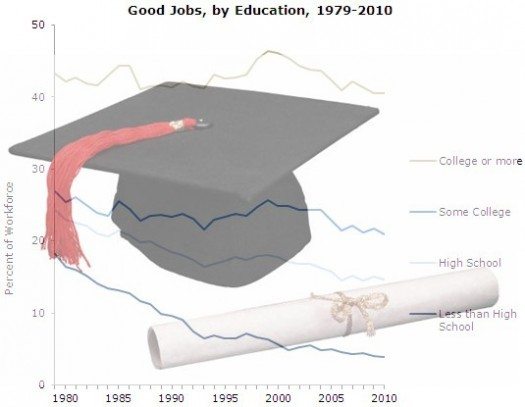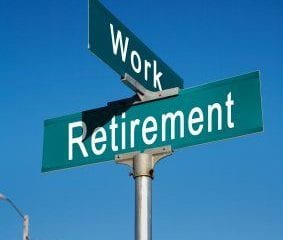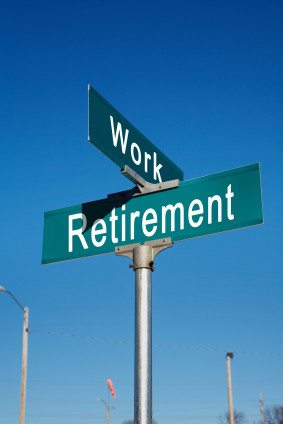

Jose Tejeda, a member of Warehouse Workers United, talks about the “dark side of Walmart” — working 16-hour days without breaks, and at a fast pace lifting hundreds of heavy boxes every hour. When employees started to unite to improve conditions, they suddenly faced retaliation, shortened work days and less pay.
» Read more about: Walmart to Warehouse Workers: "Your Health Is Not a Concern." »


 There are epic chapters in American history that inspire a seemingly endless flow of fiction, historical analysis and first-person reflection. Not least among these chapters is the 1960s, and the dramatic social movements that helped define that decade.
There are epic chapters in American history that inspire a seemingly endless flow of fiction, historical analysis and first-person reflection. Not least among these chapters is the 1960s, and the dramatic social movements that helped define that decade.
One of the newest entrees in the ’60s canon is Gates of Eden, a novel by longtime theater artist and political activist Charles Degelman. The anti-war movement is the canvas against which Degelman sets his story, and while the book is not autobiographical, the author knows his subject well. After graduating from Harvard in 1967, Degelman left Cambridge for San Francisco and joined the San Francisco Mime Troupe, the radical theater company grounded in the work of Bertolt Brecht. The troupe performed its anti-war repertoire across the country, partnering with Students for a Democratic Society (SDS), one of the leading activist groups of the era.
Degelman,
» Read more about: Author Charles Degelman on the Legacy of the 1960s »


 You will probably never meet Norma Bravilla, and if you did you would never know that this single mother is part of the backbone of L.A.’s economy.
You will probably never meet Norma Bravilla, and if you did you would never know that this single mother is part of the backbone of L.A.’s economy.
A room attendant at downtown’s Luxe City Center, Bravilla is one of thousands of workers in the city’s largest industry, a sector that generates hundreds of millions of dollars in revenues every year. Her job is to give guests the most enjoyable experience possible by making the beds, cleaning the floors and polishing every piece of glass until it shines. If she does her job well, guests are happy and the hotel industry – as well as the local economy – benefits.
But the people who do this grueling work too often are not rewarded for it. More than 40 percent of L.A. hospitality workers are poor, unable to pay for basic necessities like rent and food.
What that means is that we are not taking care of the women and men who help take of our city and its guests.


(Note: This 2010 L.A. Times op-ed appeared on the 75th anniversary of the signing of the Social Security Act. Today is that landmark legislation’s 77th birthday and, with Social Security certain to be one of the defining debate topics of this year’s presidential contest, we feel this piece is worth revisiting. Reposted with the authors’ permission.)
Alf Landon, the Kansas governor running as the Republican Party’s 1936 presidential candidate, called it a “fraud on the working man.” Silas Strawn, a former president of both the American Bar Assn. and the U.S. Chamber of Commerce, said it was part of President Franklin D. Roosevelt’s attempt to “Sovietize the country.” The American Medical Assn. denounced it as a “compulsory socialistic tax.”
What was this threat to American prosperity, freedom and democracy they were all decrying? It was Social Security, which Roosevelt signed into law on Aug.
» Read more about: Social Security Is 77 Years Old and Still a Hot-Button Topic »


Last month Walmart pulled out of Somerville and Watertown, two cities outside of Boston, claiming it wasn’t economically feasible for the company to open markets in these areas. Here’s what Walmart spokesperson Steven Restivo told Boston.com: “One of the primary deciding factors on any given site – whether it’s in an urban, suburban or rural market – is that it makes sense from a business perspective and contributes to our bottom line.”
It’s hard to believe a company that has been around for 50 years didn’t foresee that these markets wouldn’t “make sense from a business perspective” before it announced plans to open them. Walmart knows what it takes to expand and survive, including hiring expensive lobbyists, handing out money to nonprofits and reducing its market size to avoid local planning requirements. I dug a little deeper and found that the real story is much more complicated than Walmart wants to let on.
» Read more about: Two Massachusetts Towns Say No to Walmart »


A new report from the Alliance for American Manufacturing has United Steelworkers President Leo Gerard renewing his call to repair the crumbling American infrastructure. The report, prepared by Republican former head of Homeland Security Tom Ridge and Robert B. Stephan, a former Assistant Secretary of Homeland Security for Infrastructure Protection, draws disturbing correlations between weak infrastructure and lack of domestic manufacturing with the ability to respond to and recover from disasters and terrorism.
The report reads like an assessment on national security, with Ridge and Stephan referring to the decimation of the American steel industry, the sorry state of infrastructure and over-reliance on foreign actors as indicative of America’s vulnerable position. Ridge and Stephan go so far as to state that placing the building blocks of America in foreign hands leaves them susceptible to substandard labor and hostile political forces. Ridge and Stephan cite toxic Chinese wallboard used for post-Katrina construction and Chinese-made sections of the [San Francisco-]Oakland Bay Bridge that were sent back due to manufacturing defects as examples.


 With tens of millions of Americans still out of work, the idea of the U.S. achieving full employment might seem like a pipe dream.
With tens of millions of Americans still out of work, the idea of the U.S. achieving full employment might seem like a pipe dream.
Not so, argues Professor Robert Pollin in his new book, Back to Full Employment. In fact, Pollin (who uses the standard definition of full employment as four percent or less unemployment) suggests that the ongoing jobs crisis offers the perfect opportunity for us to pursue what was once a cornerstone of national economic policy.
Pollin, co-director of the Political Economy Research Institute at University of Massachusetts, Amherst, is no stranger to controversy. Beginning in 1996, when he was asked by living wage proponents in L.A. to conduct a study on how such a policy would affect the city, he has regularly incurred the wrath of free market diehards with his findings that modest mandated wage increases do not wreak havoc on business.
» Read more about: Economist Robert Pollin on Restoring Full Employment in America »


 We all know that the key to our economic future is a more educated workforce, right? Here, for example, are the “Guiding Principles” of President Obama’s education policies: “Providing a high-quality education for all children is critical to America’s economic future. Our nation’s economic competitiveness and the path to the American Dream depend on providing every child with an education that will enable them to succeed in a global economy that is predicated on knowledge and innovation.”
We all know that the key to our economic future is a more educated workforce, right? Here, for example, are the “Guiding Principles” of President Obama’s education policies: “Providing a high-quality education for all children is critical to America’s economic future. Our nation’s economic competitiveness and the path to the American Dream depend on providing every child with an education that will enable them to succeed in a global economy that is predicated on knowledge and innovation.”
Now it’s certainly true that a good education is still the best ticket – other than inheriting wealth – to entering the middle class. In the simplest terms, Americans with a Bachelor’s degree or more earn more than the average wage and those with an Associate’s degree earn less. So it makes sense for us to encourage our children to get a good education. But is the president’s assertion that the path to the American Dream in the new global economy depends on providing every child with a good education true?
» Read more about: Education: The Economy's Silver Bullet? »


 “Is there an age limit on those energy efficiency jobs you were talking about, sir?” asked an elderly woman with a heavy, Eastern European-sounding accent.
“Is there an age limit on those energy efficiency jobs you were talking about, sir?” asked an elderly woman with a heavy, Eastern European-sounding accent.
Assuming that she was inquiring for her grandchild, I told her that those interested in signing up for IBEW Local 18’s Utility Pre-Craft Trainee position must be at least 18 years old, have a valid California driver’s license and be proficient in math and English.
Just as I was about to continue with my tutorial about the academic and physical fitness requirements, the woman interrupted me with another question.
“Do you have any jobs that I can do?”
The wrinkled skin on her face, thin grey hair and her membership in the senior center I was speaking at suggested that she was at least in her mid-sixties. However, I would not be surprised if she was solidly in her seventies.


 When we think about professional performers, we generally assume they’re living the glamorous life, all day, every day. But that’s not always the case.
When we think about professional performers, we generally assume they’re living the glamorous life, all day, every day. But that’s not always the case.
Indeed, the life of an actor, broadcaster or recording artist can be glamorous. But it can also be incredibly difficult for working performers when it comes to the everyday things, like purchasing health care insurance, or taking a rest break during a 20-hour shoot… even something as basic as removing the elaborate body paint we see so often in music videos these days can be a serious challenge.
That’s why, for decades, performers have been coming together in unions to bargain for fair protections and decent working conditions. And this year, actors and performers took their collective voice to the next level by voting overwhelmingly to merge the two biggest entertainment and media industry unions – Screen Actors Guild (SAG) and the American Federation of Television and Radio Artists (AFTRA) —
» Read more about: Interview With SAG-AFTRA's Gabrielle Carteris »